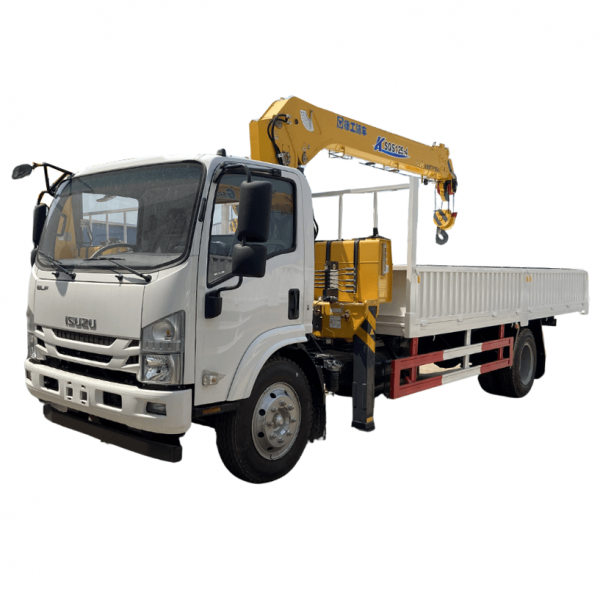Introduction
Waste management is a critical aspect of maintaining public health and environmental sustainability in urban areas. Municipal solid waste (MSW) generated from households, commercial establishments, and institutions poses a significant challenge for local authorities worldwide. To efficiently handle this waste, municipalities rely on various technologies and equipment, with garbage compactor trucks playing a crucial role.
In this comprehensive article, we will delve into the world of garbage compactor trucks for MSW management. We will explore the functioning of these specialized vehicles, their benefits, different types available, maintenance requirements, and the impact they have on improving waste disposal practices in urban settings.
Understanding Garbage Compactor Trucks
Garbage compactor trucks, also known as compactors or compactor vehicles, are specially designed trucks equipped with a compactor mechanism that compresses solid waste to reduce its volume before disposal. These vehicles play a vital role in collecting, transporting, and compacting MSW efficiently, making them an indispensable tool for municipal waste management operations.
The compactor mechanism in these trucks typically consists of a hydraulically powered ram that compresses the waste material, allowing for higher load capacities and increased efficiency in waste collection. By compacting the waste, these trucks can transport larger quantities of rubbish in each trip, reducing the number of trips required and minimizing fuel consumption and emissions.
Benefits of Garbage Compactor Trucks
The use of garbage compactor trucks offers several advantages in municipal solid waste management:
1. Increased Efficiency: Garbage compactor trucks enhance the efficiency of waste collection and transportation operations by compacting the waste material, allowing for higher load capacities and reduced frequency of trips to disposal sites.
2. Improved Hygiene: Compacting the waste helps reduce the risk of spillage and littering during transportation, maintaining cleaner streets and reducing the chances of disease transmission.
3. Cost Savings: By optimizing waste collection routes and reducing the number of trips needed, municipalities can achieve cost savings in fuel, labor, and vehicle maintenance.
4. Environmental Benefits: Garbage compactor trucks contribute to environmental sustainability by reducing carbon emissions associated with waste transportation and disposal, promoting a cleaner and greener urban environment.
Types of Garbage Compactor Trucks
Garbage compactor trucks come in various types and sizes to cater to the specific requirements of different municipalities and waste management companies. The common types of compactor trucks include:
1. Rear Loading Compactor Trucks: These trucks have a rear loading hopper where waste is loaded manually or using automated lifting mechanisms. The waste is compacted inside the body of the truck, and the rear door opens hydraulically for unloading at disposal sites.
2. Front Loading Compactor Trucks: Front loading compactor trucks are commonly used for commercial waste collection from bins located in commercial areas or large institutions. These trucks feature a front-loading mechanism with a compactor that compresses the waste as it is loaded.
3. Side Loading Compactor Trucks: Side loading compactor trucks are equipped with a side-loading mechanism that allows for efficient collection of waste from curbside bins or containers. These trucks are often used in residential areas with narrow streets or limited access for larger vehicles.
4. Roll-Off Compactor Trucks: Roll-off compactor trucks are designed to transport large volumes of waste in detachable containers that can be easily loaded and unloaded at transfer stations or disposal sites. These trucks are commonly used for construction and demolition waste.
Maintenance Requirements for Garbage
Compactor Truck s
Proper maintenance is essential to ensure the optimal performance and longevity of garbage compactor trucks. Regular maintenance tasks for these vehicles include:
1. Inspection of Hydraulic Systems: Hydraulic systems power the compactor mechanism in garbage trucks, and regular inspection and maintenance of hydraulic components are crucial to prevent breakdowns and ensure efficient operation.
2. Checking Compactor Blades and Seals: The compactor blades and seals should be inspected periodically to ensure they are in good condition and functioning correctly. Damaged or worn-out blades and seals should be replaced promptly to prevent leaks and reduce efficiency.

3. Cleaning and Sanitizing: Garbage compactor trucks come into contact with various waste materials that can lead to foul odors and contamination. Regular cleaning and sanitizing of the truck body and compactor components are essential to maintain hygiene and prevent corrosion.
4. Tire Maintenance: Proper tire inflation, rotation, and alignment are essential for the safe operation of garbage compactor trucks. Regular checks for tire wear and damage should be conducted, and tires should be replaced when necessary to ensure road safety.
Impact of Garbage Compactor Trucks on Waste Disposal Practices
The use of garbage compactor trucks has a significant impact on waste disposal practices in urban areas, leading to several positive outcomes:
1. Improved Waste Collection Efficiency: Garbage compactor trucks enable municipalities to streamline waste collection routes, optimize vehicle capacities, and reduce operational costs associated with waste transportation.
2. Reduced Environmental Footprint: By compacting waste and reducing the number of trips to disposal sites, garbage compactor trucks help minimize fuel consumption and greenhouse gas emissions, contributing to environmental conservation efforts.
3. Cleaner Urban Environment: The efficient collection and transportation of waste using compactor trucks help maintain cleaner streets, reduce littering, and enhance overall hygiene in urban areas, creating a more pleasant living environment for residents.
4. Enhanced Public Health: Proper waste management practices facilitated by garbage compactor trucks help reduce the risk of disease transmission, pest infestations, and pollution, thereby safeguarding public health and well-being.
Conclusion
Garbage compactor trucks play a vital role in municipal solid waste management by improving the efficiency, hygiene, and environmental sustainability of waste collection and transportation operations. These specialized vehicles offer numerous benefits, including increased efficiency, cost savings, and environmental conservation. By choosing the right type of compactor truck and adhering to proper maintenance practices, municipalities can enhance their waste disposal practices and contribute to creating cleaner, healthier, and more sustainable urban environments.

0Pas de commentaire